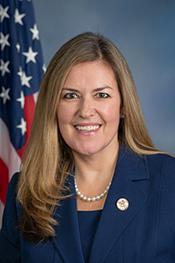0
0
0
Debt Ceiling Reform Act
12/15/2023, 3:59 PM
Summary of Bill HR 3953
Bill 118 HR 3953, also known as the Debt Ceiling Reform Act, is a piece of legislation introduced in the US Congress aimed at reforming the process by which the federal government raises its debt ceiling. The debt ceiling is the maximum amount of money that the government is allowed to borrow to fund its operations and pay its bills.
The main purpose of this bill is to streamline and simplify the process of raising the debt ceiling, which has historically been a contentious and politically charged issue. Under the current system, Congress must pass legislation to raise the debt ceiling whenever the government approaches its limit, leading to frequent standoffs and potential government shutdowns.
The Debt Ceiling Reform Act proposes to automatically raise the debt ceiling whenever the government reaches a certain threshold, eliminating the need for Congress to take action. This threshold would be determined based on factors such as the government's spending levels and revenue projections. Proponents of the bill argue that this automatic mechanism would help prevent unnecessary political battles over the debt ceiling and ensure that the government can continue to operate smoothly without the threat of defaulting on its obligations. Critics, however, raise concerns about giving up congressional oversight of the debt ceiling and the potential for unchecked government spending. Overall, the Debt Ceiling Reform Act represents an attempt to address a longstanding issue in a more efficient and less contentious manner. It remains to be seen whether this legislation will garner enough support to pass both houses of Congress and be signed into law by the President.
The main purpose of this bill is to streamline and simplify the process of raising the debt ceiling, which has historically been a contentious and politically charged issue. Under the current system, Congress must pass legislation to raise the debt ceiling whenever the government approaches its limit, leading to frequent standoffs and potential government shutdowns.
The Debt Ceiling Reform Act proposes to automatically raise the debt ceiling whenever the government reaches a certain threshold, eliminating the need for Congress to take action. This threshold would be determined based on factors such as the government's spending levels and revenue projections. Proponents of the bill argue that this automatic mechanism would help prevent unnecessary political battles over the debt ceiling and ensure that the government can continue to operate smoothly without the threat of defaulting on its obligations. Critics, however, raise concerns about giving up congressional oversight of the debt ceiling and the potential for unchecked government spending. Overall, the Debt Ceiling Reform Act represents an attempt to address a longstanding issue in a more efficient and less contentious manner. It remains to be seen whether this legislation will garner enough support to pass both houses of Congress and be signed into law by the President.
Congressional Summary of HR 3953
Debt Ceiling Reform Act
This bill replaces the existing federal debt limit with procedures that allow the Department of the Treasury to continue issuing additional debt unless a joint resolution of disapproval regarding the additional debt is enacted into law. The bill also requires Congress to consider the joint resolution using specified expedited legislative procedures.
Read the Full Bill
Current Status of Bill HR 3953
Bill HR 3953 is currently in the status of Bill Introduced since June 9, 2023. Bill HR 3953 was introduced during Congress 118 and was introduced to the House on June 9, 2023. Bill HR 3953's most recent activity was Referred to the Committee on Ways and Means, and in addition to the Committee on Rules, for a period to be subsequently determined by the Speaker, in each case for consideration of such provisions as fall within the jurisdiction of the committee concerned. as of June 9, 2023
Bipartisan Support of Bill HR 3953
Total Number of Sponsors
1Democrat Sponsors
1Republican Sponsors
0Unaffiliated Sponsors
0Total Number of Cosponsors
110Democrat Cosponsors
110Republican Cosponsors
0Unaffiliated Cosponsors
0Policy Area and Potential Impact of Bill HR 3953
Primary Policy Focus
Economics and Public FinanceAlternate Title(s) of Bill HR 3953
Debt Ceiling Reform Act
Debt Ceiling Reform Act
To amend chapter 31 of title 31, United States Code, to provide procedures for congressional disapproval of the issuance of additional debt.
Comments
Sponsors and Cosponsors of HR 3953
Latest Bills
Providing amounts for the expenses of the Committee on Ethics in the One Hundred Nineteenth Congress.
Bill HRES 131December 12, 2025
Providing for congressional disapproval under chapter 8 of title 5, United States Code, of the rule submitted by the Bureau of Land Management relating to "Central Yukon Record of Decision and Approved Resource Management Plan".
Bill HJRES 106December 12, 2025
Expressing the sense of the House of Representatives in condemning the Government of the People's Republic of China for its harassment and efforts to intimidate American citizens and other individuals on United States soil with the goal of suppressing speech and narratives the People's Republic of China finds unwelcome.
Bill HRES 130December 12, 2025
Providing for congressional disapproval under chapter 8 of title 5, United States Code, of the rule submitted by the Bureau of Land Management relating to "North Dakota Field Office Record of Decision and Approved Resource Management Plan".
Bill HJRES 105December 12, 2025
Providing for congressional disapproval under chapter 8 of title 5, United States Code, of the rule submitted by the Bureau of Land Management relating to "Miles City Field Office Record of Decision and Approved Resource Management Plan Amendment".
Bill HJRES 104December 12, 2025
Providing amounts for the expenses of the Select Committee on the Strategic Competition Between the United States and the Chinese Communist Party in the One Hundred Nineteenth Congress.
Bill HRES 104December 12, 2025
Critical Access for Veterans Care Act
Bill S 1868December 12, 2025
OATH Act of 2025
Bill S 1665December 12, 2025
A bill to extend the authority for modifications to the Second Division Memorial in the District of Columbia.
Bill S 1353December 12, 2025
Saving Our Veterans Lives Act of 2025
Bill S 926December 12, 2025
Debt Ceiling Reform Act
Bill S 1882March 13, 2024





